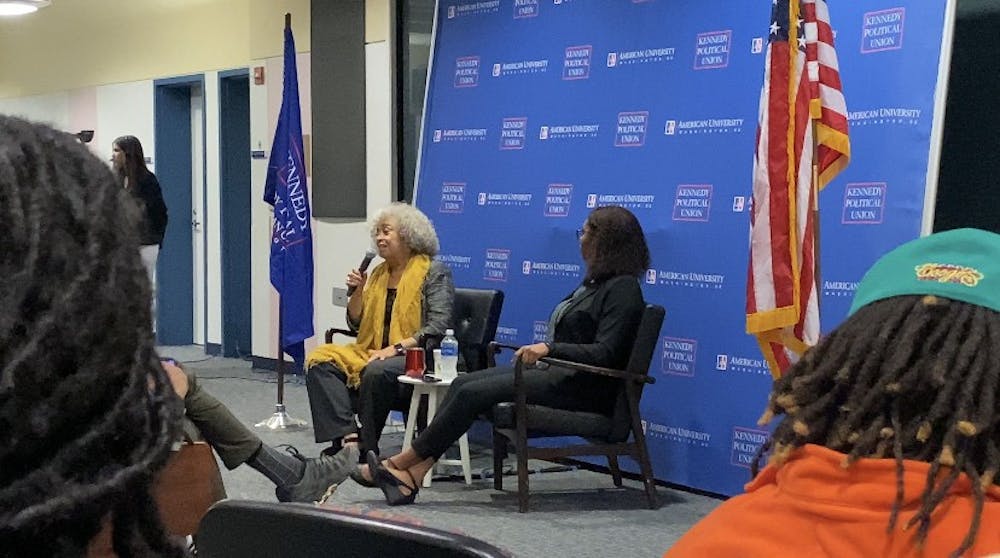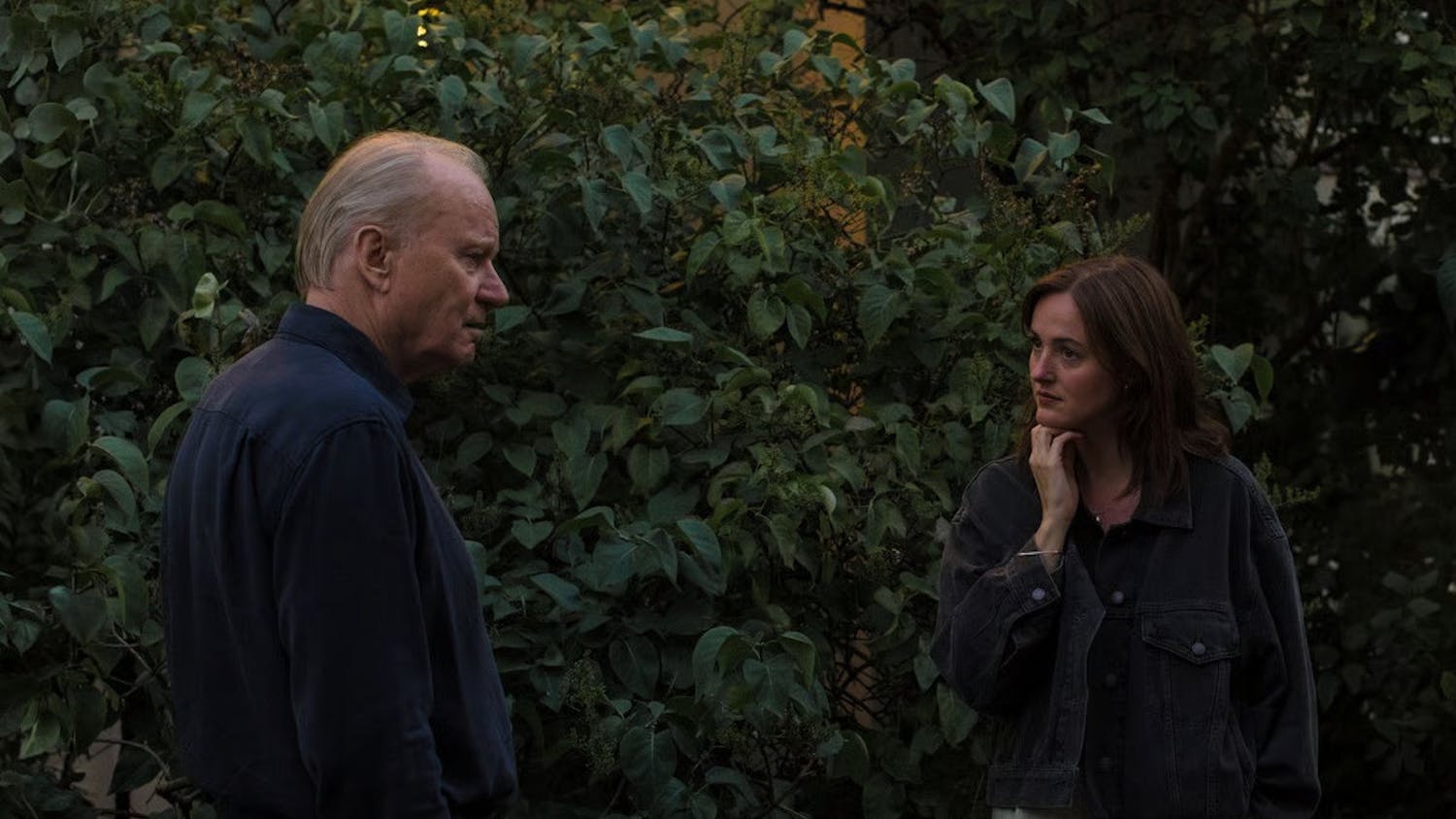Angela Davis, renowned activist, scholar and author spoke at an event hosted by American University’s Kennedy Political Union on March 23.
Davis has written extensively on issues such as class, gender, race and the U.S. prison system. She participated in the formation of the Black Panther Party, as well as the Committees of Correspondence for Democracy and Socialism. The discussion was moderated by Kydira Garfield, director of KPU and a sophomore in the School of Communication.
The event and Davis were introduced by Savannah-Rae Snyder, a freshman in the School of Public Affairs and first-year fellow with KPU.
“I think the media produced an image that was an image to be detested,” Davis said about her media portrayal as an activist. “An image of someone who was anti-white.”
According to Davis, white allies were a valuable asset to the Black liberation movement, going so far as to buy houses outside of Black-zoned areas and turning them over to Black families.
She also talked about some of the obstacles in her fight for Black liberation, such as her first experience with organized movements when she was 11 years old and attended an interracial discussion at her church. The church, however, was bombed by the Ku Klux Klan and was one of the many bombings that occurred in Birmingham, Alabama during the Civil Rights Movement.
Davis added that although lack of acknowledgement and results from the work put in can cause severe burnout, it is the idealistic ideas that got the movements as far as they are today.
“It makes no sense to believe in those ideals if we are not going to try to realize them,” Davis said at the event. “Yes, it’s idealistic, but what’s wrong with idealism?”
Davis answered questions about not just to her own work in political activism, but toward advice for others seeking to become more politically active as well.
“I would suggest that you get involved in a way that captures your own imagination,” Davis said. “Figure out a way to get involved that will be fulfilling to you.”
She highlighted the importance of community and understanding that the work towards liberation and abolition cannot be done alone.
“Because I can’t think of a single thing I have ever done that I have not done with other people,” Davis said of her proudest accomplishment. “I can tell you that I’m proud of our collective accomplishments.”
One specific example she cited is the organization around the prison-industrial complex, a term used to describe the profit-driven relationship between the government and the private companies that service prisons, coined by scholar and activist Mike Davis. According to Angela Davis, this work of organizing against the prison-industrial complex is what eventually led her to abolitionism.
“I am really proud that I was part of a movement that involved people in many parts of the country and the world that has helped to usher in these ideas,” Davis said.
The discussion then opened to audience questions, where students asked Davis about her views on collective consciousness in the Black community and active resistance in the fight against laws that target transgender individuals in states such as Florida.
“This is where we have to be constantly experimenting and constantly trying to imagine better ways of persuading people,” Davis said. “We need to lead critical lives.”
Davis went on to talk about being critical of both what you learn and how you learn, but also recognizing that knowledge does not only come from educational institutions such as colleges and universities.
The discussion ended with an emphasis on how activism is not always going to hours-long meetings and how the movement needs writers, artists and speakers.
“You have to do the work and do it in many different ways,” Davis said. “Don’t assume there is only one way to do it.”
This article was edited by Zoe Bell, Jordan Young and Nina Heller. Copy editing done by Isabelle Kravis and Leta Lattin.
Correction: This story has been updated to reflect that Kydira Garfield is in the School of Communication, not the School of Public Affairs.





